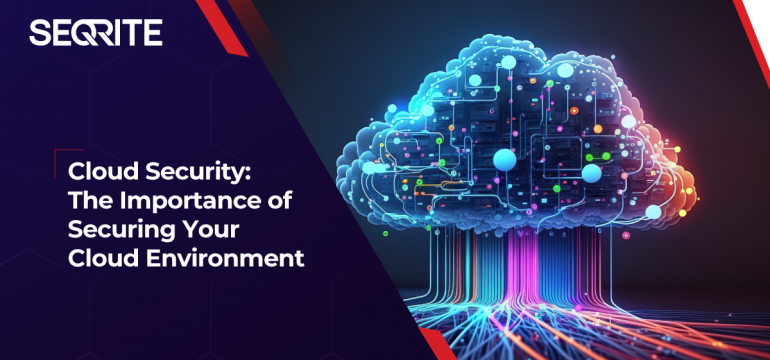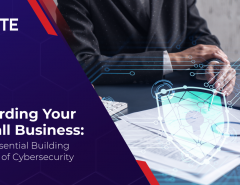Can the cloud be hacked? Yes, and when the cloud is hacked – it is not just data at risk!
The emerging digital ecosystem is treacherous. Today, every company, whether large or small, is a reachable target with operations, brand, reputation, and revenue pipelines at stake. Cloud security has become a massive issue, and hackers use system weaknesses to breach sensitive data.
While cybersecurity capabilities and awareness seem to be improving, unfortunately, the threat and sophistication of cyberattacks match that progress. For 2023 and beyond, the focus needs to be on the cyberattack surface and vectors to determine what can be done to mitigate threats and enhance resiliency and recovery. Examining the framework behind these cloud vulnerabilities is more crucial than ever.
This blog explains what cloud security is and the challenges that come with it, as well as some effective platforms for implementing cloud security solutions.
What is cloud security?
Numerous enterprises have been harnessing the capabilities of cloud-based technologies to gain benefits in terms of agility, flexibility, and scalability. But, moving to the cloud comes with the fundamental question of effectively managing security and risk posture.
Cloud security is vital to address external and internal business security threats. It is a collection of policies, procedures and technology designed to provide multi-level protection from cybersecurity breaches, support regulatory data compliance, user and device authentication, and ensure data privacy.
Traditional IT involves on-site device setup and maintenance, giving organizations more control over their data environment and a stronger cybersecurity stance. However, they are costlier and hamper scalability.
Migrating to the cloud, such as AWS, GCP, and Azure, maximizes cost-saving opportunities and makes data management easier for organizations. It helps to proactively protect data, applications, and workloads running with unmatched speed, agility, and efficiency.
Why is cloud security important?
Cloud security isn’t just about securing the cloud – it’s about securing endpoints, networks, workloads, applications, interfaces, and data hosted on the cloud. Many cloud computing providers offer built-in features and controls to protect the infrastructure, data, and workloads running on the cloud. Some of the significant benefits of cloud security are described below.
- Better visibility against threats
Cloud security offers better visibility into endpoints, networks, workloads, IAAS, PAAS and SAAS applications, aiding swift threat detection across multiple clouds. With AI-powered tools, organizations can seamlessly monitor and pre-empt malicious actions and get threat intelligence, up-to-date insights, and protection guidance.
- Cloud Security Posture Management
Cloud security posture management (CSPM) automates identifying and remediating risks across cloud infrastructures. It plays a significant role in risk visualization and assessment, incident response, compliance monitoring, and DevOps integration. It helps to uniformly apply best practices for cloud security to hybrid, multi-cloud, and container environments like Kubernetes, EKS, and IAC, like AWS Lambda.
- Efficient recovery
Cloud computing conveys quicker and more exact recoveries of applications and information with less downtime. Cloud Workload Protection tools ensure that cloud workloads are recovered in the face of an attack without any disruption to service.
- Centralized data security
Cloud computing offers centralized control to safeguard sensitive data and applications on numerous endpoints spread across locations. This enables companies to perform tasks seamlessly, such as application and data discovery, disaster recovery, network event monitoring, and web filtering.
- Flexibility and scalability
The centralized nature of cloud security enables organizations to scale with new demands and easily integrate more applications and data storage without compromising safety. It also adjusts during high traffic, bolstering security during upgrades and reducing during low usage.
- Improved DDoS protection
Distributed Denial of Service (DDoS) attacks are some of the biggest threats to cloud computing. With the increased visibility that native cloud management brings, Cloud security protects your servers by monitoring, identifying, and analyzing these attacks.
- Autonomous response
AI and machine learning-powered cloud security tools are effective against complex cyberattacks. They enhance cybersecurity by automating detection, prevention, analysis, and response to attack scale and velocity.
How does SEQRITE help with frictionless cloud security and compliance?
Integrating the cloud into your enterprise cybersecurity involves more than adding controls. It requires securing endpoints across all public, private, and hybrid cloud environments.
SEQRITE enables organizations to move confidently to multi-cloud and integrate cybersecurity into every phase of the cloud journey with our comprehensive suite of cloud-based security solutions. Our solutions offer frictionless cybersecurity, simplified governance, and complete visibility and control to safeguard sensitive data.
We take endpoint security responsibilities seriously. From edge and beyond, our cloud-native portfolio covers the following solutions –
- SEQRITE Endpoint Security Cloud – Cloud-native endpoint security to protect enterprise ecosystem and operations from a unified console.
- SEQRITE HawkkEye – Centralized security management platform to manage endpoints spread across locations from a single dashboard.
- SEQRITE HawkkScan – A data privacy management platform for automatically classifying and labelling sensitive data across a heterogeneous data landscape.
- SEQRITE HawkkHunt XDR – An extended threat detection and response platform enabling real-time cross-control correlation for Cloud Workload Protection
- SEQRITE HawkkProtect – A SaaS-based Zero Trust solution to secure access to remote corporate SAAS applications and services.
Ready to see how SEQRITE can improve your cloud security strategy? Book a demo here. We are here to accentuate your enterprise security, whether container security, threat hunting, XDR capability, or more.




